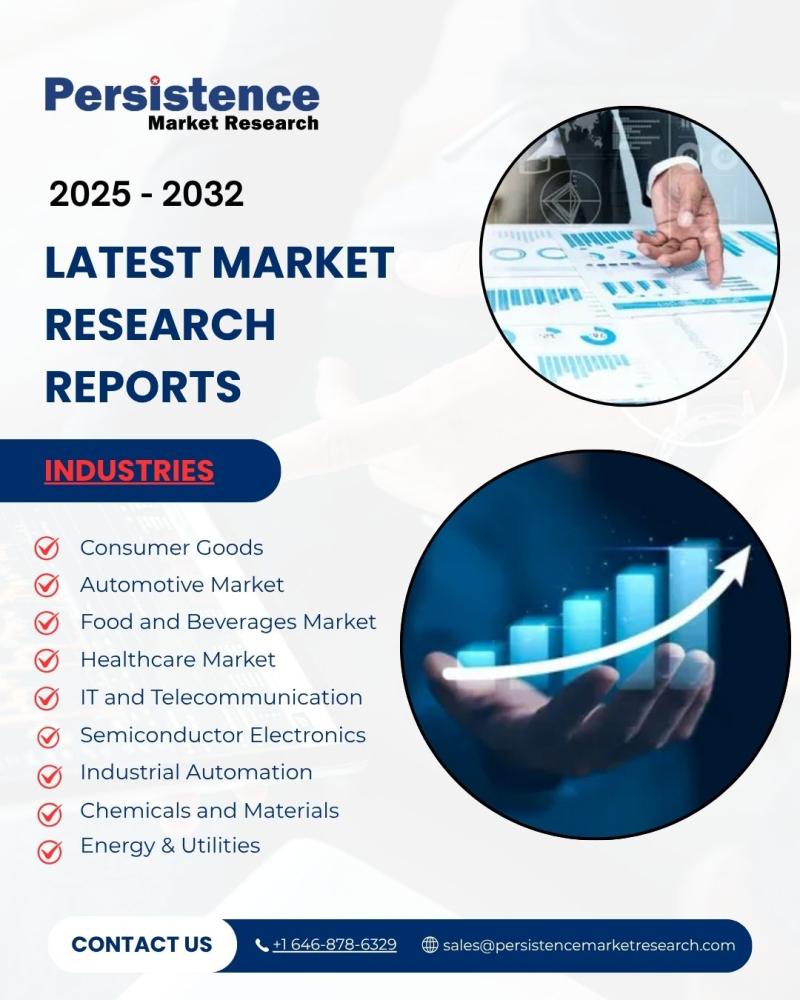Press release
Gasoline Particulate Filter Market Outlook 2031: Key Players Include Tenneco, Faurecia, Corning, and NGK Insulators
The global gasoline particulate filter market is entering a phase of accelerated expansion as regulatory bodies around the world tighten emission norms targeting particulate matter from gasoline direct injection (GDI) engines. According to Persistence Market Research, the gasoline particulate filter (GPF) market is projected to grow from US$ 1.9 Bn in 2024 to US$ 4.8 Bn by 2031, registering an impressive CAGR of 14.5%. This surge reflects the increasing adoption of GPF technology across passenger vehicles and high-performance engines, as automotive manufacturers seek to comply with low-emission standards without compromising fuel efficiency and engine output.The leading segment within the market is expected to be passenger cars, primarily due to the widespread adoption of GDI engines, which inherently produce higher particulate emissions compared to traditional port fuel injection engines. Passenger vehicle manufacturers are integrating gasoline particulate filters as standard equipment to meet worldwide regulations. Regionally, Europe dominates the GPF market, supported by its stringent Euro 6/7 standards and strong emphasis on green mobility. The rapid transition toward cleaner automotive technologies and robust automotive manufacturing infrastructure further solidify Europe's leadership in the global gasoline particulate filter landscape.
Access the updated 2025 sample report: https://www.persistencemarketresearch.com/samples/34875
The key players studied in the report include:
Key companies operating in the gasoline particulate filter market include:
• Tenneco
• Faurecia
• Bekaert
• Katcon
• Corning
• NGK Insulators
• Alantum Corporation
• CDTi Advanced Material Inc.
• Johnson Matthey Plc
• Umicore
Key Highlights from the Report
➤ Rising adoption of GDI engines in compact and mid-sized passenger vehicles is significantly expanding the demand for GPF systems.
➤ Strict emission control standards in Europe and China are compelling manufacturers to integrate GPFs as standard components.
➤ Advances in catalyst formulations and substrate materials are improving filtration efficiency while maintaining fuel economy.
➤ Increasing production of hybrid vehicles with gasoline engines is creating new growth avenues for the gasoline particulate filter market.
➤ Major automotive OEMs are collaborating with filtration technology companies to develop next-generation GPFs with reduced backpressure.
➤ Growing awareness about particulate emissions in urban areas is pushing governments to accelerate GPF deployment across global vehicle fleets.
Gasoline Particulate Filter Industry Segmentation
By Type
• Ceramic
• Cordierite
By Vehicle Type
• Passenger Cars
• Light Commercial Vehicles
• Heavy Commercial Vehicles
By Region
• North America
• Europe
• Asia Pacific
• Central & South America
• The Middle East & Africa
Region-specific customization of reports offered: https://www.persistencemarketresearch.com/request-customization/34875
Regional Insights
Europe leads the global gasoline particulate filter market, largely driven by its rigorous emission regulations such as Euro 6/7, which impose strict limits on particulate matter emissions from gasoline vehicles. The region's strong automotive manufacturing base, combined with increasing consumer awareness of environmental protection, fuels continued growth. Numerous leading OEMs are proactively adopting GPFs to transition toward sustainable mobility solutions while ensuring compliance with evolving climate targets.
Asia-Pacific, particularly China, follows closely behind due to rapid urbanization, expanding vehicle fleets, and aggressive governmental measures to reduce air pollution. China's stringent China 6 standards have accelerated the mandatory integration of GPF technology in both domestic and foreign brands operating in the country. North America is emerging as a high-potential region as the U.S. and Canada strengthen emission norms and encourage the adoption of advanced filtration technologies.
Market Drivers
The gasoline particulate filter market is driven by the global shift toward cleaner mobility solutions. One of the most significant drivers is the increasing adoption of gasoline direct injection (GDI) engines. GDI engines offer superior fuel efficiency and higher power output but generate more particulate emissions compared to traditional engines. This makes GPF integration essential for compliance with modern emission standards. As governments worldwide intensify pressure on the automotive industry to meet ultra-low emission benchmarks, the demand for advanced GPF systems continues to surge across new vehicle models.
Moreover, rising environmental consciousness among consumers and policymakers has become a major factor influencing market growth. Air pollution related to particulate matter, especially in densely populated cities, has pushed authorities to implement stricter regulations. Automotive OEMs are responding by integrating GPFs across a broader range of vehicles, including hybrids and small-engine cars. Continuous advancements in exhaust after-treatment technologies, such as low-backpressure GPF designs and optimized catalyst coatings, are also enabling manufacturers to balance performance with compliance, further strengthening market expansion.
Market Restraints
Despite strong growth prospects, the gasoline particulate filter market faces several restraints. One of the key challenges is the increased system cost associated with the integration of GPFs in gasoline-powered vehicles. The need for highly durable materials, advanced catalyst formulations, and precision engineering drives up production expenses, which may deter adoption in cost-sensitive markets. Additionally, GPF systems can lead to higher backpressure, potentially affecting engine performance if not properly optimized, creating engineering challenges for OEMs.
Another restraint is the lack of awareness and regulatory enforcement in certain regions, particularly in emerging economies. While developed regions enforce strict emission norms, some countries maintain relatively lenient standards, delaying the widespread adoption of GPF technology. The availability of alternative emission reduction strategies, such as improved fuel formulations and engine redesigns, can also compete with GPF implementation. Furthermore, concerns about long-term maintenance costs and compatibility with aftermarket modifications may influence consumer acceptance in certain segments.
Market Opportunities
The gasoline particulate filter market presents several high-growth opportunities as the global automotive industry transitions toward cleaner technologies. One of the most substantial opportunities lies in the rising demand for hybrid vehicles equipped with gasoline engines. As global adoption of hybrid mobility solutions increases, GPF installations in these vehicles are expected to grow significantly, driven by tightened particulate emission regulations. The development of next-generation GPFs optimized for hybrid engines, which operate under varied thermal conditions, opens new avenues for technological innovation.
Additionally, increased R&D investment in advanced substrate materials and catalyst technologies creates opportunities for product differentiation among manufacturers. Breakthroughs in lightweight, highly durable, and thermally efficient materials can support improved GPF performance while reducing production costs. Growing regulatory alignment across countries toward uniform emission standards can further accelerate market penetration. Expanding automotive manufacturing in Asia-Pacific and Latin America also presents substantial opportunities for suppliers, especially those offering cost-efficient yet high-performance GPF solutions.
Recent Developments:
• Several manufacturers have expanded their production capacities to meet rising OEM demand for GPF systems amid tightening emission regulations.
• Leading catalyst technology companies have introduced innovative coating solutions designed to enhance filtration efficiency while reducing backpressure.
Buy Now to get exclusive insights: https://www.persistencemarketresearch.com/checkout/34875
Frequently Asked Questions
➤ What are the main factors influencing the gasoline particulate filter market from 2024 to 2031?
➤ Which companies represent the major sources of technology and innovation in the gasoline particulate filter market?
➤ What opportunities, risks, and structural elements define the global gasoline particulate filter market?
➤ How do the top gasoline particulate filter market companies compare in terms of sales, pricing, and revenue growth?
➤ How are market types, applications, deals, revenue, and valuations analyzed within the gasoline particulate filter market?
Future Opportunities and Growth Prospects
The gasoline particulate filter market is set to expand significantly as environmental regulations grow more stringent and consumer preferences shift toward environmentally responsible vehicles. Future opportunities lie in enhancing GPF designs for compatibility with turbocharged engines, hybrid powertrains, and next-generation GDI systems. Manufacturers that invest in smart diagnostics, advanced materials, and low-emission technologies will be well positioned to benefit from the evolving landscape.
As global automotive production rises and governments push for cleaner mobility, the gasoline particulate filter market is on track to become a critical component of emission control ecosystems worldwide. Scaling production capacity, partnering with OEMs, and embracing innovation will pave the way for the next decade of growth, ensuring that GPF technology remains at the forefront of sustainable automotive engineering.
Explore more related market insights and reports by visiting our website.
Compact Wheel Loader Market Trends: https://www.persistencemarketresearch.com/market-research/compact-wheel-loader-market.asp
Refrigerated Transport Market Trends: https://www.persistencemarketresearch.com/market-research/refrigerated-transport-market.asp
Automotive Human Machine Interface Hmi Market Trends: https://www.persistencemarketresearch.com/market-research/automotive-human-machine-interface-hmi-market.asp
Electric Vehicle Power Inverter Market Trends: https://www.persistencemarketresearch.com/market-research/electric-vehicle-power-inverter-market.asp
Contact Us:
Persistence Market Research
Second Floor, 150 Fleet Street, London, EC4A 2DQ, United Kingdom
USA Phone: +1 646-878-6329
UK Phone: +44 203-837-5656
Email: sales@persistencemarketresearch.com
Web: https://www.persistencemarketresearch.com
About Persistence Market Research:
At Persistence Market Research, we specialize in creating research studies that serve as strategic tools for driving business growth. Established as a proprietary firm in 2012, we have evolved into a registered company in England and Wales in 2023 under the name Persistence Research & Consultancy Services Ltd. With a solid foundation, we have completed over 3600 custom and syndicate market research projects, and delivered more than 2700 projects for other leading market research companies' clients.
Our approach combines traditional market research methods with modern tools to offer comprehensive research solutions. With a decade of experience, we pride ourselves on deriving actionable insights from data to help businesses stay ahead of the competition. Our client base spans multinational corporations, leading consulting firms, investment funds, and government departments. A significant portion of our sales comes from repeat clients, a testament to the value and trust we've built over the years.
This release was published on openPR.
Permanent link to this press release:
Copy
Please set a link in the press area of your homepage to this press release on openPR. openPR disclaims liability for any content contained in this release.
You can edit or delete your press release Gasoline Particulate Filter Market Outlook 2031: Key Players Include Tenneco, Faurecia, Corning, and NGK Insulators here
News-ID: 4270416 • Views: …
More Releases from Persistence Market Research
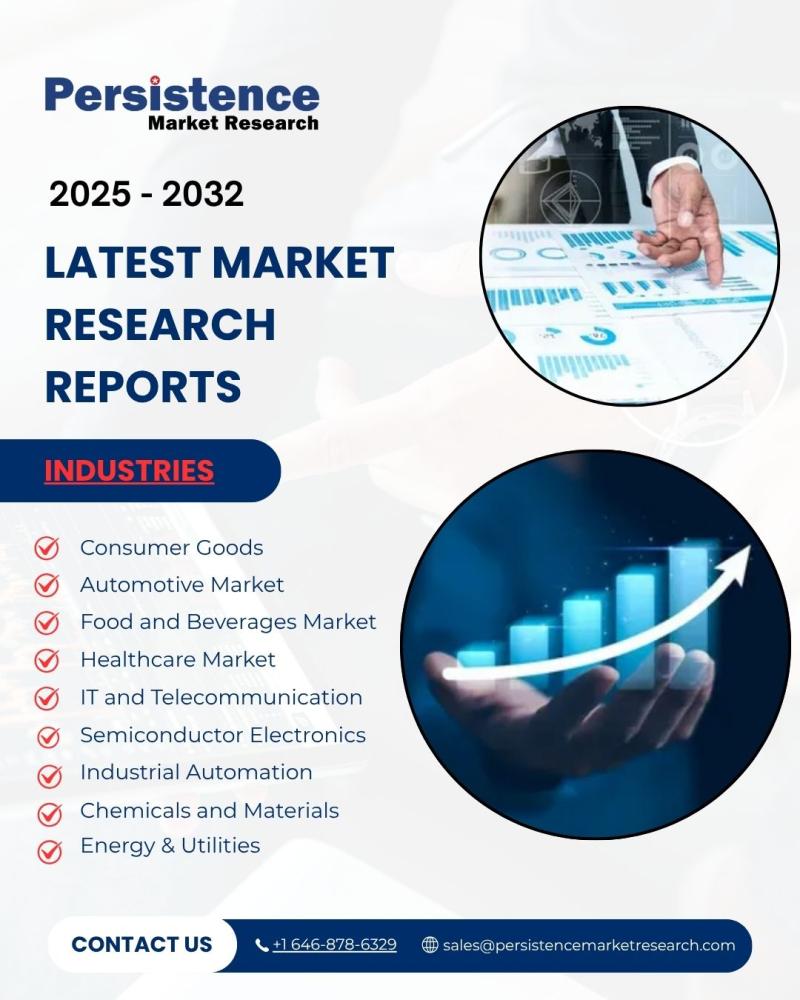
Catalytic Converter Market in North America to Reach US$ 32.34 Billion by 2031 B …
The North America automotive catalytic converter market is entering a pivotal stage of growth driven by tightening emission standards, rising vehicle production, and the shift toward more advanced exhaust after-treatment technologies. According to Persistence Market Research, the market is projected to grow from US$ 18.63 Bn in 2024 to US$ 32.34 Bn by 2031, registering a strong CAGR of 7.3% during the forecast period. Growing awareness around environmental protection, coupled…
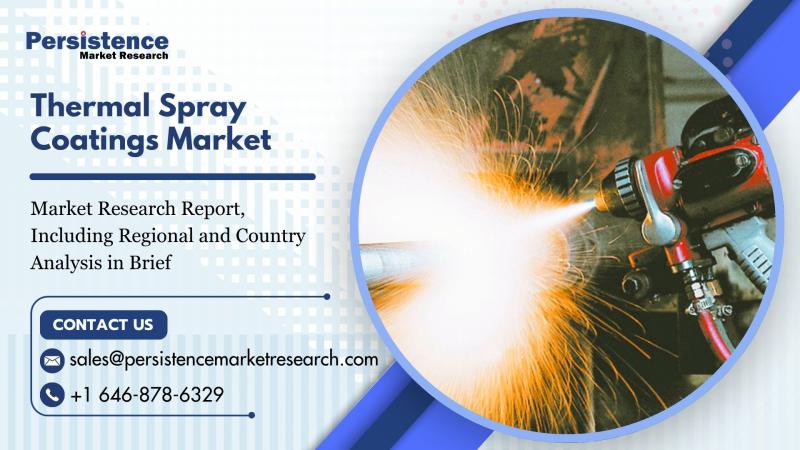
Thermal Spray Coatings Market to Reach US$18.3 Billion by 2032 Driven by Rising …
The global Thermal Spray Coatings Market is undergoing robust expansion as industries increasingly adopt advanced surface enhancement solutions to improve durability, corrosion resistance, and performance efficiency across critical components. According to the latest study by Persistence Market Research, the market is projected to be valued at US$ 12.1 billion in 2025 and is expected to reach US$ 18.3 billion by 2032, registering a significant CAGR of 6.1% during the forecast…
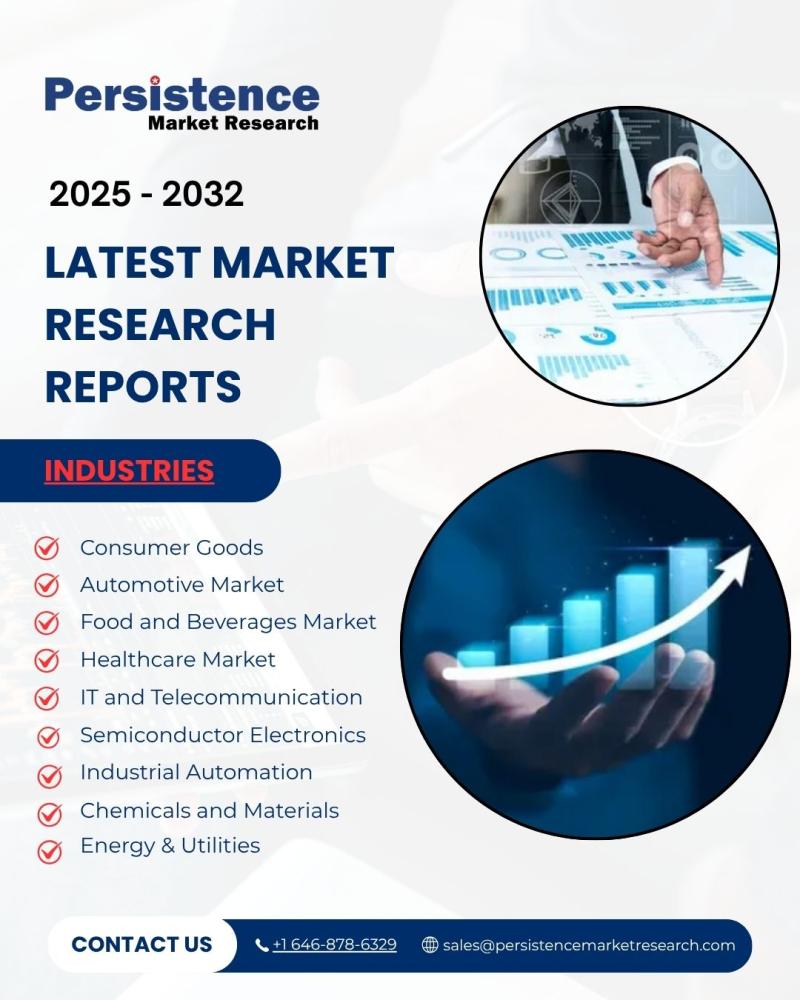
Off-Highway Powertrain Market Outlook 2032: Key Players Include Cummins, ZF Frie …
The global off-highway powertrain market is entering a dynamic period of growth driven by rapid advancements in construction, agriculture, and mining equipment technologies. As machine manufacturers increasingly prioritize fuel efficiency, durability, and emissions compliance, demand for advanced powertrain solutions is rising substantially. According to Persistence Market Research, the global off-highway powertrain market is expected to reach US$ 10.7 Bn in 2025 and climb to US$ 16.9 Bn by 2032, expanding…
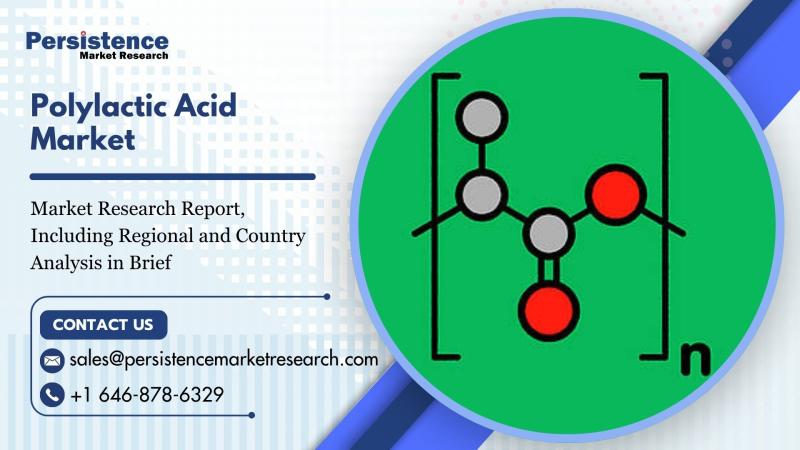
Polylactic Acid Market to Reach US$ 3.29 Bn by 2032 Driven by Rising Demand for …
According to the latest study by Persistence Market Research, the global Polylactic Acid (PLA) Market was valued at US$ 1,149.8 million in 2025 and is projected to witness exponential growth over the coming years. The market is expected to expand at a staggering CAGR of 16.2% from 2025 to 2032, reaching a valuation of US$ 3,289.0 million by 2032. This remarkable growth is primarily driven by increasing global awareness about…
More Releases for GPF
GPF Champions Agricultural Innovation Via SafeRock
GPF has announced a strategic partnership with SafeRock, a UK-based soil enhancement company that has demonstrated significant potential for transforming the agricultural landscape. Recognizing the revolutionary impact of SafeRock's unique sedimentary fortifier, GPF has decided to take an equity stake in the company, reaffirming its commitment to championing innovative agricultural solutions.
Originating from a 600m-deep sandstone formation, SafeRock's natural sedimentary fortifier is enriched with essential macro and micronutrients tailored for diverse…
Emission Control Technology Market : Diesel Particulate Filter (DPF), Gasoline P …
According to the report published by Allied Market Research, the global emission control technology market size was valued at $91,540 million in 2017 and is projected to reach $160,314.9 million by 2025, registering a CAGR of 7.3% from 2018 to 2025. The report offers a detailed analysis of drivers & opportunities, evolving market trends, competitive scenario, key segments, and market size & estimations.
𝐃𝐨𝐰𝐧𝐥𝐨𝐚𝐝 𝐑𝐞𝐩𝐨𝐫𝐭 𝐒𝐚𝐦𝐩𝐥𝐞 : https://www.alliedmarketresearch.com/request-sample/5219
Factors such as emission…
Gasoline Particulate Filters (GPF) Market by Advance Technology, Future Outlook …
Automotive gasoline particulate filter (GPF) is an efficient and durable technology used to control ultrafine particles emission in gasoline direct injection engines. This technology is also referred as Otto particle filter or petrol particulate filter. This system operates at higher average temperature than diesel particulate filter means that slow residue regeneration.
The report facilitates the overall understanding of the Global Gasoline Particulate Filters (GPF) with the substantial potential to grow. The…
Gasoline Particulate Filters (GPF) Market 2023: Global Industry Size, Outlook, S …
LOS ANGELES, United States: A recent report published by QY Research, titled, Gasoline Particulate Filters (GPF) Market, provides an in-depth analysis of the global Gasoline Particulate Filters (GPF) market. The research report is divided in a way to highlight the key areas of the market and provide a comprehensive understanding to the reader. The report deals with various aspects of the Gasoline Particulate Filters (GPF) market such as its scope…
Automotive Gasoline Particulate Filter (GPF) Market Growth Rate, Demands, Trend, …
Automotive Gasoline Particulate Filter (GPF) Market research report is one point solution for businesses to evolve, grow, and mature. It provides real-time data collection methods that can track niche products' growth that aligns with your goals. The insights and statistical models utilized by analysts and experts offer an in-depth analysis for making robust decisions in a short period. In addition, it provides a broad study of many vital factors like…
Automotive Gasoline Particulate Filter (GPF) Market Is Booming Across The Globe …
Automotive gasoline particulate filters (GPF) are used to control the emission levels of particulate matters in various gasoline direct injection engines (GDI). These engines are equipped with exhaust systems in the vehicles. It can also be used as an emission after- treatment technology based on the principals of diesel particulate filters (DPF), it is used to control the particulate emissions from gasoline direct injection (GDI) engines. This technology is also…
